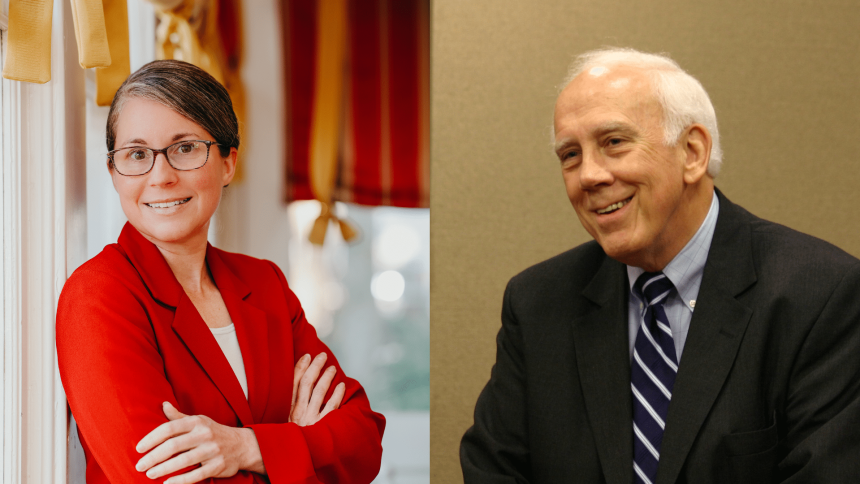Incumbent Mississippi Supreme Court Justice Jim Kitchens had four challengers hoping to replace him on the state’s highest court. After Kitchens was forced to a runoff by state Sen. Jenifer Branning, the weeks preceding the final vote on Tuesday, November 26 have served to intensify the contentious race.
During the general election, Branning won 41.8% of the vote to Kitchens’ 35.6% to force the runoff.

Branning, a Republican who works as an attorney when not at the state capitol, aims to make the Supreme Court seat in District 1 her first judicial position. Since the summer months, she has harped on 20 years of legal experience and eight years of work as a lawmaker as reasons why she should be elected.
Branning’s appeal to voters has remained steady throughout her campaign. Along with an emphasis on fair ruling, she’s underscored a commitment to “constitutional conservatism” which has given pause to some considering the position is nonpartisan. Pro-Branning advertisements have framed Kitchens as a judge who pushes legislation from the bench and attacked the 81-year-old’s age in the campaign for an eight-year judicial term.
When asked what it means to be a constitutional conservative before the general election, Branning’s explanation pointed to a letter-of-the-law approach.
“Upholding the rule of law, upholding the constitution as it is written, and not carrying out the duties of the constitution as if it were a living and breathing document. It’s not,” Branning said.
RELATED: What to know about Mississippi’s upcoming judicial runoffs
In the larger legal community, there has long been a rift between those who believe that the constitution – both the U.S. Constitution and the guiding documents of individual states – is a “living, breathing” document, or one that can be interpreted differently as society evolves over time. The definition blurs in many cases, with many holding that the document is indeed “alive” because it can be amended by articles such as the Bill of Rights. Others, however, hold an “originalist” view that means the document should be interpreted based on how the original text addresses new issues without changing the founding fathers intended meaning.
Kitchens, who has neglected to mention partisan politics in his campaign, gave an answer to the same question that offers a different perspective, albeit one that seems to land in a similar place as his opponent.
“The idea that [the constitution] is a living, breathing document sounds good metaphorically, but I don’t think there’s any truth to that,” Kitchens said this week. “What the constitution is – it’s adaptable to the times. The constitution as written is not entirely applicable to our way of life now. So, we have to adapt to it. We have to adjust our thinking about the constitution as new things develop.”
When asked about his thoughts on the seemingly partisan-leaning approach by his opponent, Kitchens doubled down on his commitment to fairness.
“I can speak only for myself,” Kitchen said. “Since I’ve been on the court, I’ve worked very hard not to be conservative and not to be liberal – not to be anything other than someone who follows the law. Not liberalism, not conservatism, but a devotion to the rule of law in the United States.”
The other gap between Kitchens and Branning is their experience – both of which they claim give them an advantage over the other. Kitchens was first elected to the state’s highest court in 2008 and seeks a third consecutive term, though he has spent the majority of his 50+ year career as a private attorney.
Comparatively, Branning, who has never held a judicial position, is leaning on her legislative experience, private sector legal pedigree, and family-oriented values to separate herself.
While the two have taken different approaches in likely the most publicized statewide election on the ballot in 2024, Kitchens and Branning clearly agree on the importance of voter turnout.
“Despite the fact that the holidays are upon us, we’ve got to finish this,” Branning said. “I would encourage everyone to please go vote. Vote absentee if you’re traveling. It’s important for the future of our state.”







